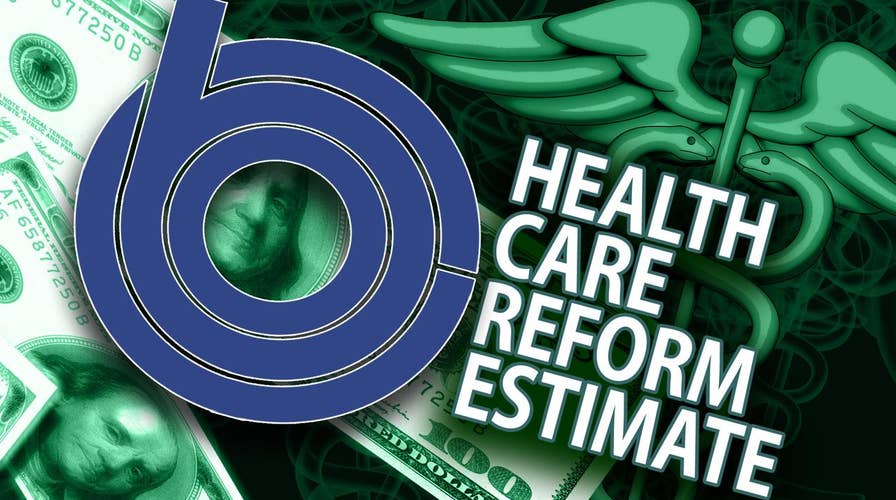CBO: 22M more uninsured by 2026 with Senate health care bill
Fox News senior Capitol Hill producer Chad Pergram says the Congressional Budget Office's score adds to the operational problems for Senate Majority Leader Mitch McConnell
Senate Republicans hope to strike a deal on its controversial health care legislation by Friday in order to give the Congressional Budget Office a chance to review the law during lawmakers’ July 4 recess.
Sen. John Thune, R-S.D., and other GOP aides told Fox News that GOP senators must reach an agreement on the legislation by Friday.
“I think that we would like to get a solution in place as quickly as possible, get our members there so then it’s just a question of getting the [Congressional Budget Office] score and setting up the timeline for votes when we get back after the 4th of July break,” Thune said. “So, I mean, I don’t know that there is any particular rush, other than I think the longer this drags out, the harder it becomes.”
The CBO released its cost estimate for the Senate’s ObamaCare replacement plan earlier this week. The announcement came after some GOP senators expressed opposition to the bill in its current form.
Some senators warned that they wouldn’t push for a vote on the health care legislation — dubbed the “Better Care Reconciliation Act of 2017” — until the CBO’s audit was released.
Here’s a look at what the CBO found and how it could impact lawmakers.
What does the score say?
Along with the Joint Committee on Taxation, the CBO audit of the Senate’s health care bill determined that 22 million people would be uninsured by 2026 should the legislation be enacted.
The figure may further complicate Senate GOP leaders' plans to pass their bill this week. It's barely an improvement upon the health care bill that passed the House — which would have resulted in 23 million more uninsured.
The CBO estimated that the legislation would cut the deficit by $321 billion by 2026 — approximately $202 billion more than the House bill would save.
The audit also estimated that 15 million more people would be uninsured with the Senate legislation than under current law “primarily because the penalty for not having insurance would be eliminated.”
Will this influence lawmakers’ decision to support the bill?
Some GOP senators had said they would wait to issue support for the legislation until the CBO score was released.
SENATE HEALTH CARE BILL: HOW IS IT DIFFERENT FROM THE HOUSE LEGISLATION
Five Republican senators have already announced that they do not support the health care bill as is. Several senators have remained uncommitted — promising to review the legislation before declaring any opinion.
How does this compare to the House bill?
The latest CBO score of the House’s health care legislation estimated that 23 million fewer Americans would be uninsured by 2026. It also predicted that the average cost of premiums would be lower, and the plan would reduce the deficit by $119 billion in a decade due to Medicaid cuts and private insurance subsidies.
SOME GOP SENATORS WILLING TO WAIT ON CBO SCORE BEFORE VOTING ON HEALTH CARE BILL
Earlier estimations predicted the deficit could be lowered by as much as $337 billion or $150 billion in 10 years.
Why does the score matter?
Aside from just revealing the monetary aspect of the Senate’s legislation, the CBO’s score also predicts how many Americans would be left without insurance under the plan.
And while it doesn’t restrict lawmakers’ actions, the score can help influence their decisions.
The Associated Press contributed to this report.





